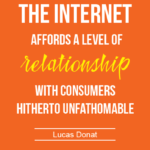Social media has become a powerful tool for shaping politics, business, world culture, education, careers and more. However, the impact it has on our lives depends on how we use it.
Exposure to carefully curated highlight reels of others’ lives can lead to feelings of inadequacy and low self-esteem. It can also encourage the unhealthy practice of seeking external validation through likes and comments.
Social Media Has Changed The Way We Communicate
With social media, we can connect with people from all over the world. This has changed the way we think and interact. People can share information and ideas quickly, and they can build community and support groups. Social media also allows businesses to reach customers in new ways.
For example, a message on Twitter can go viral in minutes and reach millions of people worldwide. This type of communication has helped to shape movements and spread awareness about important issues. It has also changed the way we communicate with each other, allowing us to be connected even though we are thousands of miles apart.
There are some downsides to this change, however. Over-dependence on social media can have negative effects on mental health. The constant exposure to carefully curated highlight reels of other people’s lives can lead to feelings of inadequacy and low self-esteem. It can also cause an increase in procrastination and a decrease in productivity. The need for “likes” and other forms of external validation can also cause problems.
Despite these disadvantages, social media has also greatly improved the way we communicate with each other. It has helped to form new communities that revolve around specific products or interests, allowing companies to create brand loyalty and boost sales. It has also allowed companies to reach their customers in a more direct way, bypassing traditional media channels.
It Has Changed The Way We Stay Connected
Social media offers many advantages, from improved connectivity and information sharing to networking opportunities and a way to promote businesses. It also raises awareness of important issues and allows activists to connect with a larger audience. However, it also has disadvantages, such as negative effects on mental health and privacy concerns.
For example, some people use social media to self-soothe their moods by comparing themselves to others’ perfect lives. This can lead to feelings of dissatisfaction and depression. Social media also contributes to FOMO, or fear of missing out. Social media users often post photos of their perfect lifestyles, but their real lives are not as picture-perfect. Their homes may be messy and their children unruly.
Another problem with social media is its potential to alienate people from each other. Several studies have shown that heavy social media use can lead to poorer health outcomes, including low life satisfaction and an increased risk of depression. Social media is especially problematic for adolescents, who are going through an onslaught of biological and psychological changes. A study by Jean Twenge found that high school seniors who spend the most time on social media reported the lowest levels of life satisfaction.
Fortunately, there are ways to overcome the problems associated with social media. One way is to limit social media usage and participate in face-to-face interactions with friends. In addition, it’s important to focus on the positive aspects of social media and find healthy ways to engage with it.
It Has Changed The Way We Think
While social media has numerous advantages, it also comes with a host of disadvantages. Some of these include a false sense of connection, superficial friendships, and the waste of time. It can also cause emotional and psychological problems such as depression and anxiety. It can even cause people to lose track of their own lives. It is also a tool for criminals and predators.
People in advanced economies generally recognize social media’s value as a way to bring sociopolitical issues to the attention of elected officials or the public. A median of seven-in-ten in these countries say that social media is effective for bringing these issues to light. People in emerging economies are less sure about social media’s effectiveness in this regard, but a majority in most countries still believe that it can have this impact.
People in many countries also see social media as a useful tool for promoting tolerance. A median of 45% across 19 countries say that social media has made people more accepting of others from different backgrounds and religions. In contrast, a median of 22% say it has made them less accepting. This difference is especially pronounced among younger people and those with higher levels of education. These differences may reflect differing views about democracy and how to approach political disagreements. Regardless, it is clear that social media has helped to reshape the world in which we live.
It Has Changed The Way We Live
The rise of social media has impacted our lives in a myriad of ways. It has improved connectivity, provided a global stage for digital activism, and empowered business to expand their audiences. However, it also has disadvantages like its negative impact on mental health and privacy concerns. In addition, the spread of misinformation (or “Fake News”) has become a major concern with the potential to sow political discord and confusion.
It has also changed the way we live in that we tend to prioritize social media friendships over real-life friends. It can lead to an unhealthy sense of self-absorption where we compare ourselves constantly with others online. Some studies have shown that if you spend too much time on social media, it can cause you to feel depressed and anxious.
Despite these drawbacks, it’s undeniable that Social Media has changed the world for better or worse. It’s influenced politics, business, world culture, education, careers, and innovation. The ubiquity of these platforms has even affected our language; we now use terms like ‘Google it’ or ‘tweet it’ as part of our daily vocabulary. These platforms have also created a new form of activism, where individuals with marginal views can see that they’re not alone and gain momentum through the power of the internet. This has resulted in real change, from passing sexual harassment legislation as a response to #MeToo to pushing for criminal justice reform after the rise of Black Lives Matter.

